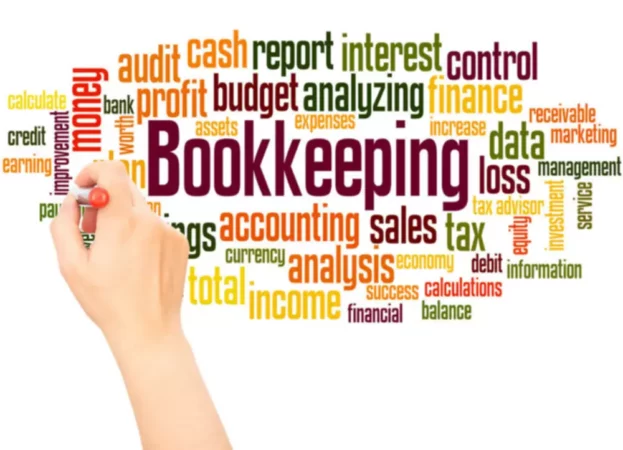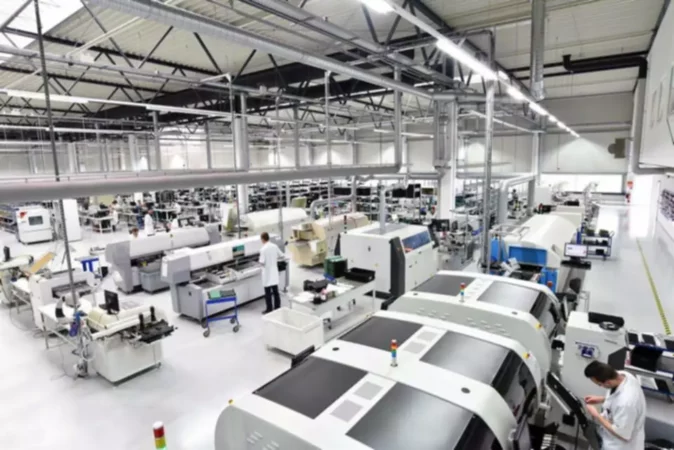
We hope this article has helped clarify depreciation for you and given you a better understanding of the process. Depreciation is simply a way of allocating the cost of an asset over its useful life. There are also special rules and limits for depreciation of listed property, including automobiles. Computers and related peripheral equipment are not included as listed property.
Double-Declining Balance Depreciation
While land itself cannot depreciate, certain improvements and developments made to land, such as buildings, landscaping, and land development costs, are subject to depreciation. However, the value of land does not decrease with the depreciation of its components due to its inherent characteristics. It is thus essential to accurately assess the value of these assets at the time of acquisition and sale to precisely determine the capital gain and corresponding tax obligation.
Provides a tax deduction for businesses (in some countries).
This distinct characteristic arises from the nature of these assets, which typically include land and certain types of intellectual property. Non-depreciable assets are not subject to depreciation because they have a different nature and purpose than depreciable assets. Now that we understand assets that can be depreciated, let’s explore the world of assets that cannot be depreciated. Non-depreciable assets do not qualify to take the depreciation deduction for various reasons. These assets typically have an indefinite useful life, or their value increases over time.
Written by Financial Accounting
Instead of depreciating such assets, we amortize them which is quite similar to depreciation. But because there are separate accounting rules to consider when applying amortization, most accountants refer to intangible assets as non-depreciable assets. The Depreciation Tax Shield provides a way for businesses to recover some of the initial investment made in acquiring the asset through reduced tax obligations. By recognizing depreciation expenses, businesses can lower their taxable income and, in turn, reduce the amount of taxes they owe. A car, truck, van, and other vehicles used for business purposes are depreciable assets. The depreciation is based on factors such as the initial cost, expected usage, and estimated useful life of the vehicle.
- It is a method of depreciation that calculates the value of an asset based on its usage.
- The straight-line method assumes that the property will last for an equal amount of time and uses a single rate to calculate the deduction.
- However, strategic planning around the acquisition, holding period, and sale of these assets can offer tax advantages.
- One can calculate depreciation by dividing the total cost of the asset by how often one uses it.
- If a business accidentally depreciates a non-depreciable asset, it should consider taking corrective action immediately.
Depreciation Base of Assets
The kinds of property that you can depreciate include machinery, equipment, buildings, vehicles, and furniture. If you use property, such as a car, for both business or investment and personal purposes, you can depreciate only the business or investment use portion. Land is never depreciable, although buildings and certain land improvements may be. For instance, a manufacturing company may buy a building and machinery to produce their products. Building and machinery are considered depreciable assets as they directly contribute to the company’s production activities. On the other hand, if the company invests in stocks or acquires a patent, these assets are considered non-depreciable.

Depreciable assets are expected to last at least 12 months in the business from when they are acquired. Companies should also consider the strategic benefits of investing in such assets, weighing their potential to appreciate against the need for liquidity. Generally, if you’re depreciating property you placed in service before 1987, you must use the Accelerated Cost Recovery System (ACRS) or the same method you used in the past. For property placed in service after 1986, you generally must use the Modified Accelerated Cost Recovery System (MACRS). Accountingo.org aims to provide the best accounting and finance education for students, professionals, teachers, and business owners.
If an asset is located in an environment regularly exposed to such conditions, it may not achieve its intended service life expectancy. Instances in which the usage begins immediately after the acquisition are the easiest to prove. However, there are situations where an asset has been used without being recorded as a fixed asset.
In addition, specific improvements to land, such as landscaping or parking lots, are also considered non-depreciable. While improvements often have a limited useful life, they are commonly ineligible to be depreciated. The world of asset depreciation can be confusing and complex, filled with jargon and technicalities that can leave even the most experienced business owners scratching their heads. In this article, we’ll dive deep into assets that cannot be depreciated while explaining the rules and regulations surrounding them.

However, strategic planning around the acquisition, holding period, and sale of these assets can offer tax advantages. The primary tax consideration for these assets comes into play when they are sold or otherwise disposed of, at which time capital gains tax may be incurred. While they are tangible, their value can appreciate over time, placing them in the non-depreciable asset category. Some assets can be depreciated, which means you can claim a portion of their value on taxes. By implementing these strategies, companies can effectively manage their assets and ensure they continually contribute to the overall financial success of a business. Knowing what assets can or cannot depreciate – and why – is key to understanding how depreciation affects your bottom line.
This is done by taking the asset’s original purchase price and dividing it by the number of years in its useful life. Understanding the nature and characteristics of these non-depreciable assets is essential for effective financial management and strategic decision-making within an organization. It calculates depreciation expense by dividing the total expected production units over the asset’s useful life. These assets can only be claimed on taxes as depreciable property if they are used to conduct business or are used by you to produce income. If a property is owned for personal use, perhaps as a vacation home for you and your family, it wouldn’t be considered depreciable. However, if the home is rented out during the months you aren’t occupying it, then you can only depreciate a portion of the property’s cost.
I made the following infographic to give you some examples of depreciable assets in a small business. Depreciation is the gradual wearing down of an asset over time, and it is used to account for the loss in value of an asset due to age, wear and tear, or obsolescence. Depreciation is a non-cash expense, which means that it does not involve any actual cash outflow. This includes not only the purchase price but also any costs incurred to bring the asset into use, such as transportation and installation expenses.
The depreciation calculations should also include any expenses related to these assets. On the other hand, items or costs that are only expected to provide benefits for less than a year should be expensed immediately as period costs. Yes, a specific type of accountant known as a depreciation accountant specializes in understanding the concept of depreciation and how it affects a company’s finances.
This content is very general in nature and does not constitute legal, tax, accounting, financial or investment advice. You are encouraged to consult with competent Attorney, CPA, EA or CFP based on your specific requirements & personal circumstances. Hopefully you better understand that Depreciation is an important concept to understand when it comes to tax season, especially if you own any business assets.
For example, if a business purchased a computer for $3,000 and depreciates that purchase over five years, it would subtract $600 from its taxable income each year ($3,000 divided by 5). Businesses must be aware of this deduction opportunity to pay more taxes than necessary. The primary purpose of depreciation is to match the expenses incurred using an intangible or physical asset with the revenue earned. This matching concept is called the matching principle and is one of the key pillars underlying accrual basis accounting. The value of an asset on the balance sheet is essential in cost accounting because it determines the amount of depreciation that can be claimed. Depreciation is a method of allocating such costs over the useful life of the asset.
The concept of depreciation in accounting vastly differs from the concept of depreciation in economics. In accounting, we assume the value of cash to remain stable over time and ignore the effects of inflation on monetary assets. If you’re confused about whether you should depreciate an asset or not, look for these five common characteristics of depreciable assets.
For example, suppose a company buys a new piece of equipment to be used for production over the next five years. In that case, depreciation expense matches the revenue generated from selling those products. By navigating through the complexities of non-depreciable assets, businesses and financial enthusiasts alike unlock a deeper understanding of asset valuation and strategic management.
Depreciable assets can also help to hedge against future losses, and the proceeds from their sale can help finance other aspects of the business. It is essential to account for asset depreciation when planning budgets and financial goals because it can significantly impact an individual’s net worth. By understanding how depreciation works and how to calculate it, individuals can make informed decisions about their investments and protect themselves from potential financial losses.

